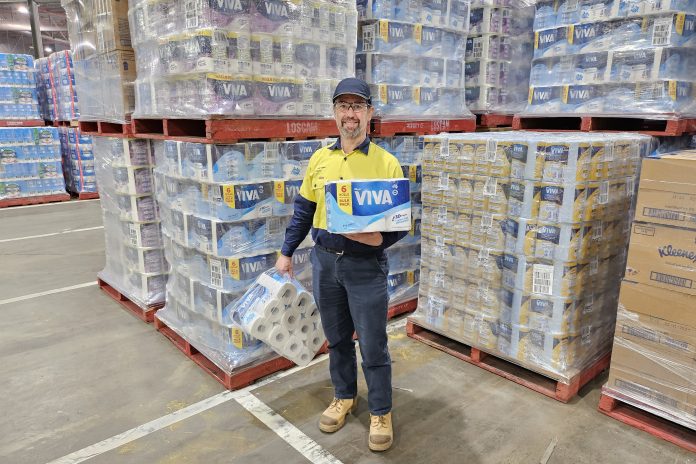Kimberly-Clark Australia has partnered with Woolworths on a packaging trial that’s set to remove tonnes of plastic waste from supermarkets and supply chains across the country.
As part of an ongoing commitment to cut virgin plastic usage by half by 2030, the partnership will enable Kimberly-Clark Australia to save 15 tonnes of plastic annually.
The trial saw VIVA paper towels packed directly onto pallets for Woolworths, without the use of secondary packaging or ‘bundling’.
After over a year in development and testing, the packaging trial reached stores in mid-September and has been deemed a preliminary success, with staff highlighting time efficiencies for stock replenishment and plastic disposal as an additional benefit to the change. Both parties have agreed to continue with the new approach and actualise those plastic savings.
“Aussie consumers are looking to us to reduce plastic across the board, so we’ve worked incredibly hard with the Woolworths team to bring this trial to life – and it’s safe to say we’re thrilled with results to date,” says Kimberly-Clark Australia Mill Manager Adam Carpenter.
“Removing an ‘invisible’ layer of packaging might not sound like a major achievement, but it represents a significant change to the way products have been manufactured and distributed across Australia for many years – and it’s taken a great deal of problem-solving and persistence to deliver these savings.
“Rethinking our approach to packaging – and how things have always been done – was instrumental to the success of this project, and now we’ve shown what’s possible, we’ll be looking at other opportunities to roll this out further. We’re looking forward to future collaborations with our customers, including Woolworths, that help reduce plastic waste in Australia.”
Woolworths Category Manager for Paper Goods, Period & Continence Care Tim Moffatt adds: “We’re really pleased to see our trade partners working to remove and reduce unnecessary plastic packaging through the supply chain. Packaging used to transport products through our network can be a significant opportunity for sustainability improvements but requires close collaboration to ensure team safety and product quality is maintained.”



